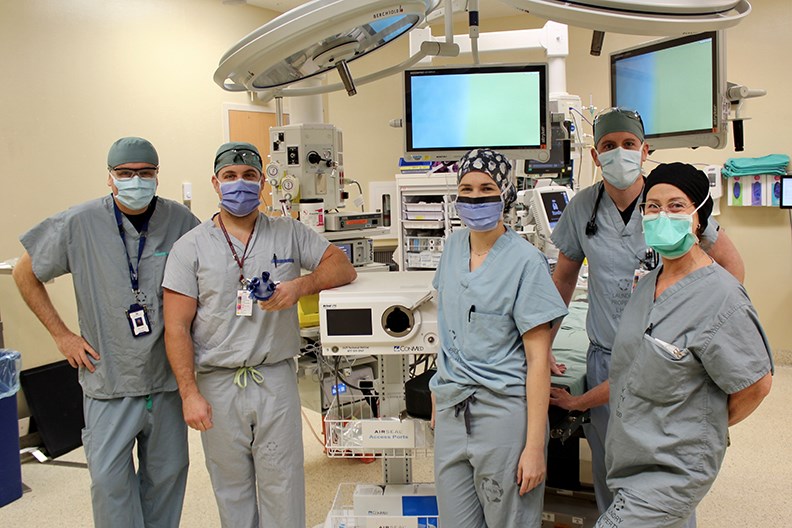Journal staff
Bluewater Health is expanding cancer treatment options available locally, with the introduction of minimally invasive surgery for early stage rectal cancer, the hospital announced this week.
The news comes with the recruitment of a general surgeon who completed a fellowship in minimally invasive colon and rectal surgery, as well as investment in specialized instrumentation, a news release noted.
Patients with early stage rectal cancer or large pre-cancerous rectal polyps can now undergo transanal minimally invasive surgery (TAMIS) at Bluewater Health instead of travelling to London or other major centres.
The TAMIS platform allows for patients to resume normal activity within one to two days following surgery and is relatively pain free, the hospital noted.
“When colorectal cancer is detected early, patients have more treatment options and a better chance of survival and recovery,” said Dr. Jeremy Springer, general and colorectal surgeon. “When treated in its early stages, colorectal cancer is curable in over 90% of patients, and when performed in a minimally invasive manner, patients experience faster recovery with less pain and post-operative complications.”
The majority of colorectal cancers begin as a growth on the inner lining of the colon or rectum known as a polyp. Some polyps may develop into cancer over time - usually many years – but not all polyps become cancerous.
Early detection is important because treatments are more likely to be successful for early rather than late-stage cancer.
March is Colorectal Cancer Awareness Month. While colorectal cancer is the second leading cause of cancer-related death in Canada, it is preventable, treatable, and beatable. As colorectal cancer affects people of all ages, Canadians should be aware of the signs and symptoms and what to do if they arise.
Regular screening is a great way to reduce your risk of developing this disease.
Symptoms
- Unexplained constipation or diarrhea or change in bowel habits
- Ongoing urge to have a bowel movement
- Blood ranging from bright red to dark black
- Persistent abdominal pain
- Unexplained weight loss
- Weakness and fatigue
Anemia caused by iron deficiency
Lifestyle & Risk Factors
- Significant consumption of red meat
- Low fibre diet
- Excessive consumption of alcohol
- Smoking
- Overweight/obesity
- Lack of physical activity
- Age
- Family cancer history
- Inflammatory bowel disease
